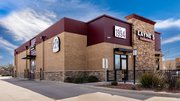Article
Commentary: New management smothers creative spark
When a company is taken over, changing agencies should be reconsidered to avoid discontinuity.

March 27, 2011
By Barry Klein
It’s enough to make creative people cry … or binge … or worse, give up trying to be creative. In case you hadn’t noticed, there is an alarming trend among major brands that have been acquired and/or experience top management changes to extinguish the spark of unique creative communication that once distinguished the brand. In the restaurant category alone, examples abound. Burger King is the latest.
No matter what one’s opinion of the Crispin Porter + Bogusky's work, it was interesting and different for the category, raising awareness and appreciation for the brand among its heavy fast-food user category. Was the target too narrow to increase sales significantly? Who decided to focus on that target? Was the customer experience and/or the product good enough to generate more visits by the target? If the same talent was asked to create advertising for a broader demographic, would it have produced better results?
No one (including Burger King) knows the answers to these questions, but the outcome was to abandon the bold and return to the old.
Topping off the management directional change, Burger King has buried the marketing function under an executive who is also responsible for operations. Yes, buried. There has always been (and always will be) a conflict between operations and marketing in restaurant chains.
Companies with outstanding operations and successful marketing maintain them as separate functional departments on an equal corporate level, settling conflicts between them and allowing the free flow of creativity. Marketing reporting to operations subordinates the creative ideas that come from marketing people. There is a high probability that Burger King advertising will not be as creative in the future.
Last year the same situation occurred at CKE (Carl’s Jr. and Hardee’s). The company was taken over, and marketing was subordinated to the point where the equally startling, much-discussed creative effort was no longer in evidence. Mendelson/Zien, the very creative agency (that also contributed to product development) was replaced.
The latest so-called “innovation” is a ground turkey burger, which has very limited appeal, and to a completely different audience. Will this event move sales like the Paris Hilton commercial? This is another change of direction by new management—not for the better.
Wendy’s is another chain that changed management and agencies recently. Although their best creativity was in the marvelous Dave Thomas campaign, and they changed agencies several times since, current advertising is relatively ordinary. New management direction is suspected in this case, too.
Outside of the restaurant category, the saddest example of the management-monkey- wrench-in-the-process is Anheuser Busch since the merger with InBev. Gone is the brilliant Mr. Lachkey (and presumably others in his department), and with him the drive for truly creative approaches to selling the product. Did any of the Bud or Bud Light commercials in this year’s Super Bowl telecast measure up to the "Frogs," or "Whassup?" Where is the drive for the agency to create great advertising coming from? Not from the new management, unfortunately.
The point here is that when a company is taken over, getting rid of the current agency should be quite low on the priority list, especially if they have produced great creative for the brand in the past. Not only is the agency likely to be the best source for ongoing continuity, but they are in an excellent position to help new management with marketing direction.
If the new people can subordinate their egos and the desire to bring in their friends or former colleagues, it is likely that they will at least learn enough to achieve their objectives, even if the decision to review agencies comes later. And perhaps the communications will be even more creative than they were in the past. A new broom often sweeps the dirt into a different, uglier pile.
Barry Klein is best known for creating the Ronald McDonald character and led the "You Deserve A Break Today" advertising campaign for McDonald's. Prior, he spent five years as a McDonald's franchisee in New York City, then returned to marketing as senior vice president of Wells Rich Greene in Los Angeles. There, he worked on campaigns for Jack in the Box, Ford, Hills Bros. Coffee, Century 21 and more. In his current occupation as a marketing consultant, Klein has developed business-building concepts, new products and consumer communications for Coca Cola, Pizza Hut, Quiznos, Cadillac, Ruby Tuesday, Friendly’s, Perkins, Pay Less Shoes and others. He has been a key contributor to such projects as Stuffed Crust Pizza for Pizza Hut, Prime Rib Subs and Torpedoes for Quiznos, Smashburger and McDonald’s with the Diner Inside. Klein has also been a partner in a Tony Roma’s Restaurant as well as a guest speaker and lecturer on advertising, food photography and commercial production at several universities.









